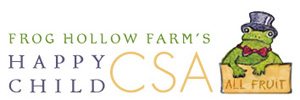THIS WEEK’S FRUIT:
Navel Oranges
Twin Girls Farm, Yettem, CA
California Navel Oranges are considered to be the best Navels for eating out of hand. They have a thick skin that is easy to peel, are seedless and have a meaty and sweet flesh that makes them a perfect snack. To read more about the fine folks at Twin Girls Farm please see a previous blog post at http://bit.ly/2fnFf2m.
Hayward Kiwis
Chiechi Farm, Live Oak, CA
Originally known as the Chinese gooseberry due to its Chinese origins. Hawyward Wright, a New Zealand nurseryman propagated his plants by grafting, and they eventually became the preferred cultivar of growers due to their sweet flavor and thin skin. To read more about Richard and Cindy Chiechi please see a previous blog post at http://bit.ly/2gZUvT5.
Pomegranates
Hamilton Growers, Reedly, CA
Native to the regions of Persia and the Western Himalayan range, pomegranates have been cultivated for several millennia. When sliced open a beautiful array of jewel-like seeds are displayed. The aril is the colorful casing that surrounds the edible seeds and has a sweet tart flavor. Enjoy the arils alone or use them in salads, desserts, or beverages.
Pink Lady Apples
Cuyama Farm, New Cuyama, CA
Pink Lady’s are a cross between the Golden Delicious and Lady Williams. They are a crisp and juicy apple with a tart finish. Pink skins and a creamy white colored flesh that resists browning make this an excellent apple for salads and slicing.
Clementine Mandarins
Olsen Organics, Lindsay, CA
Clementines are very sweet, juicy, easy to peel, and usually seedless, making them very popular with children and adults alike. Store out of sunlight for 2-4 days on the counter or up to two weeks in the fridge. To read more about Ken Olson, please see previos blog post at http://bit.ly/2grsBOE.
Fuji Apples
Cuyama Farm, New Cuyama, CA
Fujis are a cross between Red Delicious and Ralls Janet, an heirloom apple dating back to Thomas Jefferson. They are one of the sweetest variety apples around making them a household favorite.
…all varieties are subject to change…
A NOTE FROM FARMER AL:
Dear CSA Members,
The CCOF (California Certified Organic Farmers) inspector arrived at 10:30am this last Tuesday, and for the next 5 solid hours, I was questioned, grilled, cross examined and investigated on every aspect and detail imaginable regarding farming organically here at Frog Hollow Farm. The purpose of this inspection is to verify compliance, by Frog Hollow Farm, to the rules and laws established by the federal government, through the USDA, governing organic farming.
The inspector, Ben, was actually very nice. It’s just that he was so damned good at his job, so detailed and thorough. For instance, at one point he said, “Show me an invoice of fruit sold to a wholesale customer and a paper trail for that fruit all the way back to the orchard it came from.” To satisfy his request and to show documentation of that trail, we had to provide:
- The packing shed report showing:
- Pick date
- Pack date
- Block of trees picked from
- Quantities of the fruit picked from that block
- Sizes and grades of that pick
- The Packing log, showing:
- Date
- Number of picking totes received from the field
- Orchard of origin
- Variety
Then, he wanted to see copies of all labels used to market everything we sell. This is dozens of labels! CCOF wants a picture of each one in their database.
He inspected the packing shed where men were in process of packing your CSA boxes. So he asked for copies of the organic certifications for each of the growers who are providing us with winter fruit.
He inspected our compost operation and asked for records of temperatures, turning logs, ingredients used and sources of ingredients.
He inspected our gardens and green house and spent a lot of time examining seeds purchased invoices, verifying that we used only organic seeds. And invoices for the growing medium we use to “start” the seedlings.
Of course, he also need to see our OFIR report” Off-Farm-Input-Report”. The report shows:
- Name of material
- Date applied
- Rate applied
- Source of material
- Where applied
- Stage of growth of the crop
- Reason applied (“for control of…”)
I update the OFIR report on almost a daily basis, year round. It is a key piece of information nor just for CCOF but also for ourselves.
The list of reports and information goes on and on and it took 5 solid hours of providing the inspector with detailed documentary evidence of everything we do, including kitchen activities and our organic kitchen products. That part of the inspection was mercifully, only another 2 hours.
Fortunately, over the years, we have become very good at record keeping and we passed the inspection with flying colors. I breathed a big sigh of relief when it was over.
Regards,
Farmer Al

 Follow
Follow
